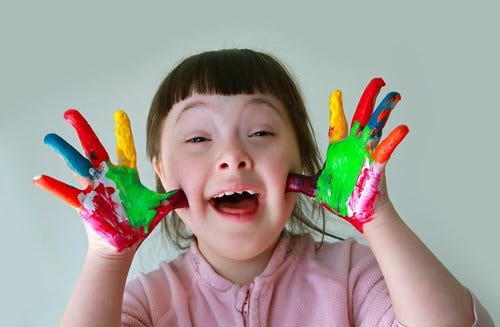Is society overthinking challenging behaviour?
And the lessons we can learn from special education
What we see as a failure to behave properly is actually a failure to communicate effectively.
After 15 years of working in special education, certain fundamentals always seem to resonate most when supporting families with child development. Here are some of the lessons I’ve learned.
The value of teamwork
“Admitting mistakes, taking ownership, and developing a plan to overcome challenges are integral to any successful team” - Jocko Willink
A cliché in any industry, but if a class team isn’t working effectively together, it could be dangerous, for staff and children. Therefore, to make sure class strategies are of any use, accurately feeding back what did and didn’t work was essential, especially when different personalities would work better with specific students in certain contexts. It is also counterproductive when teachers know best, as everyone views the same problem differently, due to experience and personality, so evaluating various opinions is a necessity. Raising children is easier when parents and extended family work together and are able to accept - without taking it personally - that someone might know something they don’t. Furthermore, if someone is having a nightmare with a child, hostile takeovers of care rarely go well, and having a neutral phrase like "Let me know if you need a break” keeps (outspoken) judgement and ego bruising to a minimum. Overall, it’s important to have an open mind, not take opinions personally, try different approaches and reevaluate inevitable failures.
The need for consistency
“Small disciplines repeated consistently achieve great things slowly over time” - John Maxwell
Behaviour plans in special education have to be watertight to be effective and involve many failed versions and constant tweaking before something clicks, and even then it will not work forever. Furthermore, consistency during the implementation of a strategy is key to testing whether it does and, sometimes more importantly, does not work. It can be very confusing for a child if different adults have different approaches to their behaviour, and this is - more often than not - the reason why a behaviour plan is ineffective or makes things worse.
The importance of detaching from emotion
“You cannot lead a child if you are led by your emotions.”
Watching your child tearfully struggle to take her coat off sounds harsh, but celebrating success after she worked it out herself reinforces independent problem-solving, rather than the tears. Behaviour is communication with 4 functions: attention, escape, access, or automatic. The best course of action is to work out which one is causing what you are seeing. Stepping back and analysing a tantrum - what led up to this; what behaviour you want to reinforce; and what strategy achieves that - beats the pride-induced screaming match every time. Decisions under duress, justified or not, are never as good as those with a clear mind, and it makes it harder to be consistent. Letting things go on a good day can be just as detrimental as reacting too harshly on a bad day.
The curse of low expectations
“Nobody rises to low expectations” - Les Brown
Each generation of children is being raised with lower expectations, whether that’s discipline, athleticism, academic or emotional regulation. One of the biggest challenges in special education is low expectations and the assumption that children can’t achieve certain goals because of a diagnosis or disability. It is more productive to view a challenge a child is having as a problem that needs solving. They can’t do this the typical way, so we will find a way that they can. However, this doesn’t mean pumping them full of affirmations, just avoid praising a 3-year-old for jumping off a curb when they achieved that at 2. On to forward rolls and cartwheels. The core message is to let children achieve a goal with the least possible support, allowing them to fail but gaining the knowledge, competence and, therefore, confidence to persevere through a challenge.
The Dopamine Industrial Complex - They’ve been hacking adults for centuries, and now they have the kids
Worrying about worry - The science behind anxiety and its effect on children
What do rats, apes and children have in common? - How rough-and-tumble play is a biological - and psychological - necessity
Attention deficit or sleep-deprived? - The relationship between ADHD, focus, and sleep.






